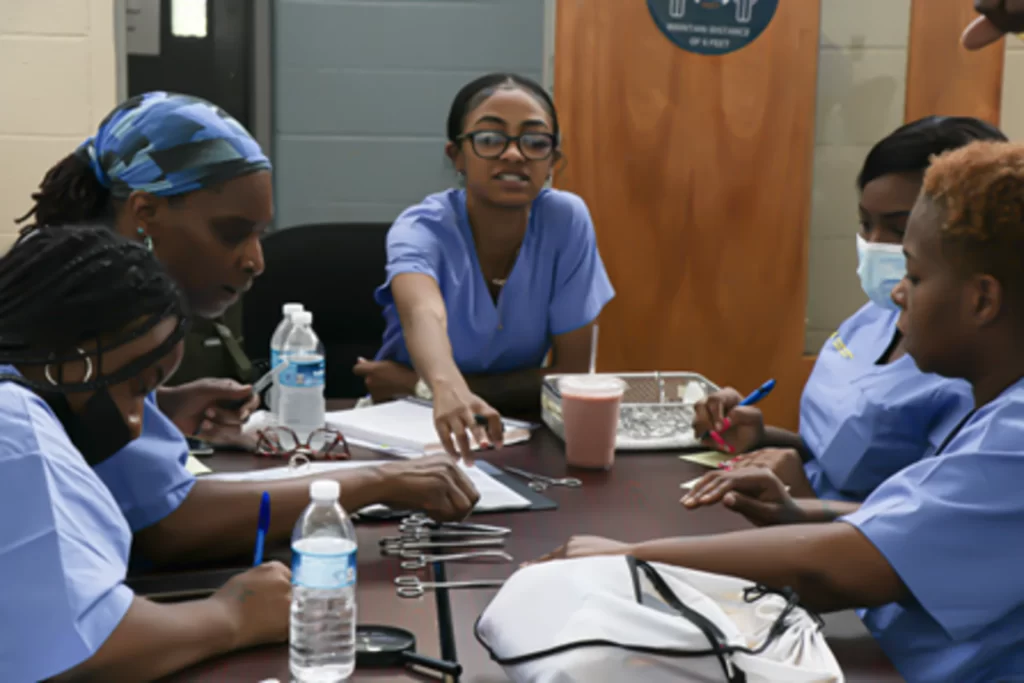The vital significance of sterile processors has never been more apparent in the fast-paced world of healthcare. By ensuring that medical tools and equipment are flawlessly clean and germ-free, these qualified personnel serve as the foundation of any medical facility. As 2023 approaches, the responsibilities placed on sterile processors are changing along with the healthcare industry. Let’s examine the fundamental abilities and information that these professionals must possess this year.
The central sterile technician, also known as a sterile processor, is an essential team member responsible for upholding the highest levels of infection control. They work diligently behind the scenes to guarantee that patients receive high-quality medical care. In 2023, these professionals’ responsibilities went beyond simple cleaning and sterilization procedures. They are currently at the forefront of implementing cutting-edge sterilization technologies, which calls for a thorough understanding of advanced machinery and procedures.
The sterile processing sector requires specialists to accept new technologies. Autoclaves and chemical disinfectants are no longer the only tools available for sterile processing. These days, sterile technicians use cutting-edge equipment like low-temperature sterilization systems that use hydrogen peroxide plasma to eliminate infections without damaging delicate instruments. The operation and troubleshooting of these complex systems are becoming increasingly important for today’s sterile technologists.
The value of earning a sterile processing certification cannot be emphasized as the duties of sterile processing technicians continue to expand. The latest breakthroughs in sterilization technology are covered in a structured curriculum with a sterile technologist certification, which confirms the technician’s knowledge. With the knowledge gained through this certification, technicians are better prepared to advance in their careers and meet the changing needs of the healthcare sector.
Sterile processing technicians must be knowledgeable about various sterilizing methods by 2023. This is part of knowing the subtleties of steam sterilization, ethylene oxide sterilization, and even more recent techniques like vaporized hydrogen peroxide sterilization. Each method has its own set of guidelines, precautions to take, and equipment needs. Based on the types of tools and materials being sterilized, a qualified sterile processing technician ought to be able to choose the best procedure.

Patient safety is directly impacted by sterilization quality. Here, the sterile processing job goes beyond just technical duties. To spot problems throughout sterilizing, technicians must develop a sharp eye for detail. A sterile processor’s profession requires them to check regularly and test sterilization equipment, adhere to strict regulations, and take part in quality improvement projects. It takes a combination of accuracy, alertness, and dedication to ensure that every device is safe and sterile.
Interdisciplinary healthcare teams must include sterile technicians as essential members. Effective communication is a skill that cannot be disregarded in 2023. To ensure that tools are prepared for surgeries when necessary, technicians must work closely with surgeons, nurses, and other healthcare professionals. Communication must be clear and concise to avoid delays, resolve issues, and maintain a smooth flow of patient care.
Both the healthcare industry and sterilization technology are changing quickly. Sterile processing technicians must be flexible and open to change as new technologies are developed. Continuous learning and a way of thinking are necessary for these experts to stay on the cutting edge of their industry. Workshops, seminars, and online training can assist technicians in staying current on new developments to give patients the best care possible.
In addition to navigating a complex network of regulatory norms and requirements, sterile technicians must keep up with technological changes. To protect patient health, agencies like the Food and Drug Administration (FDA) and the Association for the Advancement of Medical Instrumentation (AAMI) have strict regulations. It is crucial to fully comprehend these rules to guarantee that the sterilization procedure remains compliant and patients receive safe care.
A sterile processing job has developed into a dynamic, diverse career in 2023. Beyond the fundamental abilities of sterilizing, technicians now need to be proficient in cutting-edge technologies, work well with others, and be adaptive in a quickly evolving healthcare environment. Sterile processing technicians are well-positioned to play a key part in providing safe and effective healthcare for years to come with the correct mix of technical proficiency, communication skills, and a dedication to continued education.
Read More: